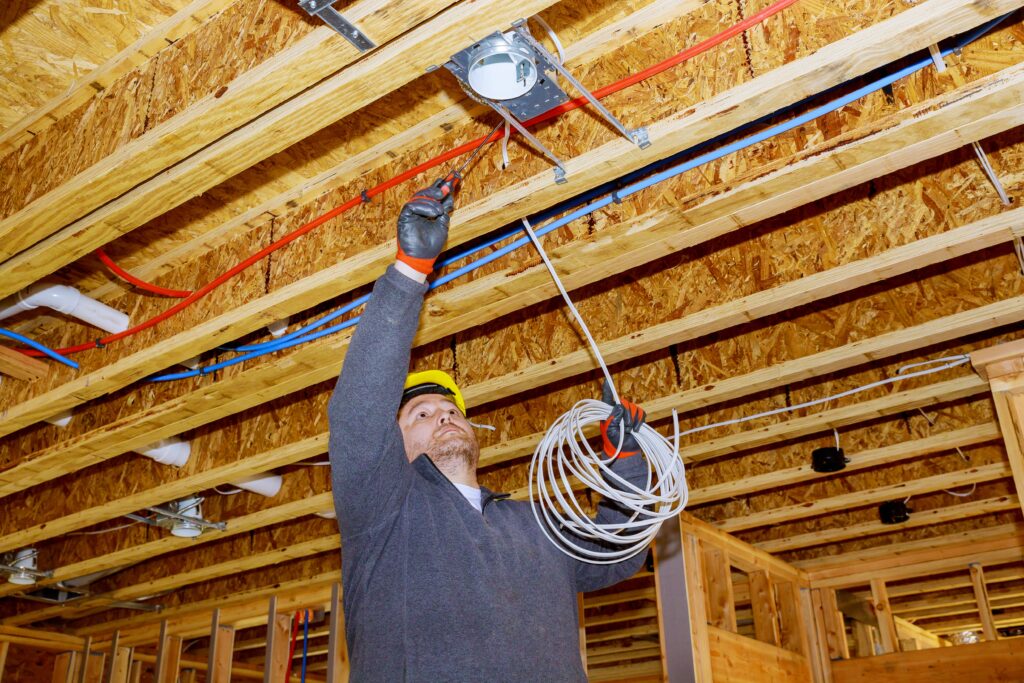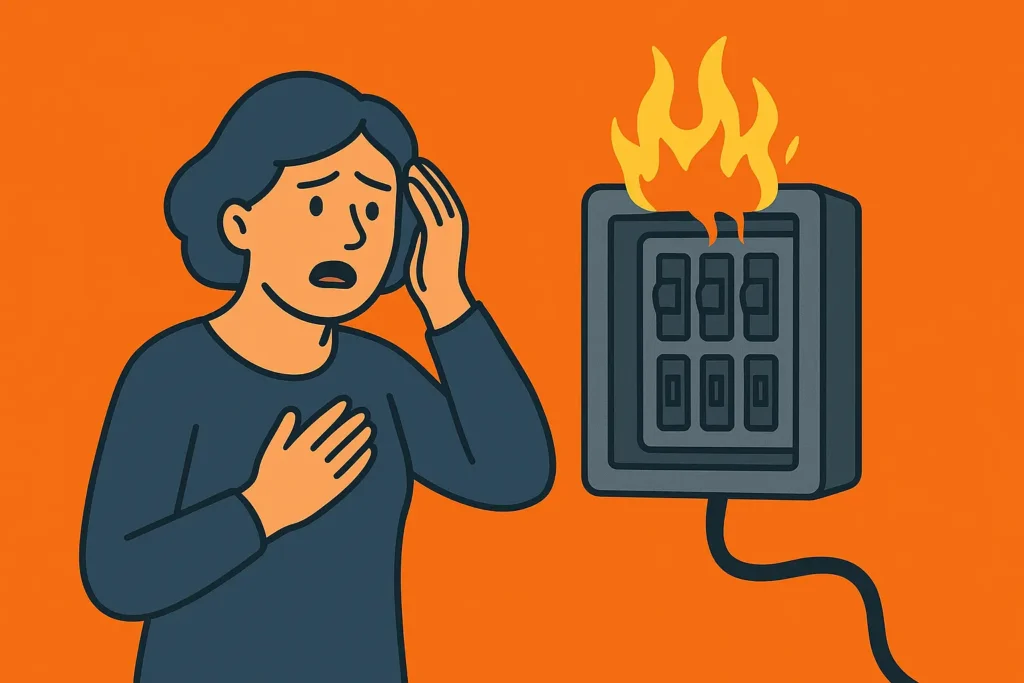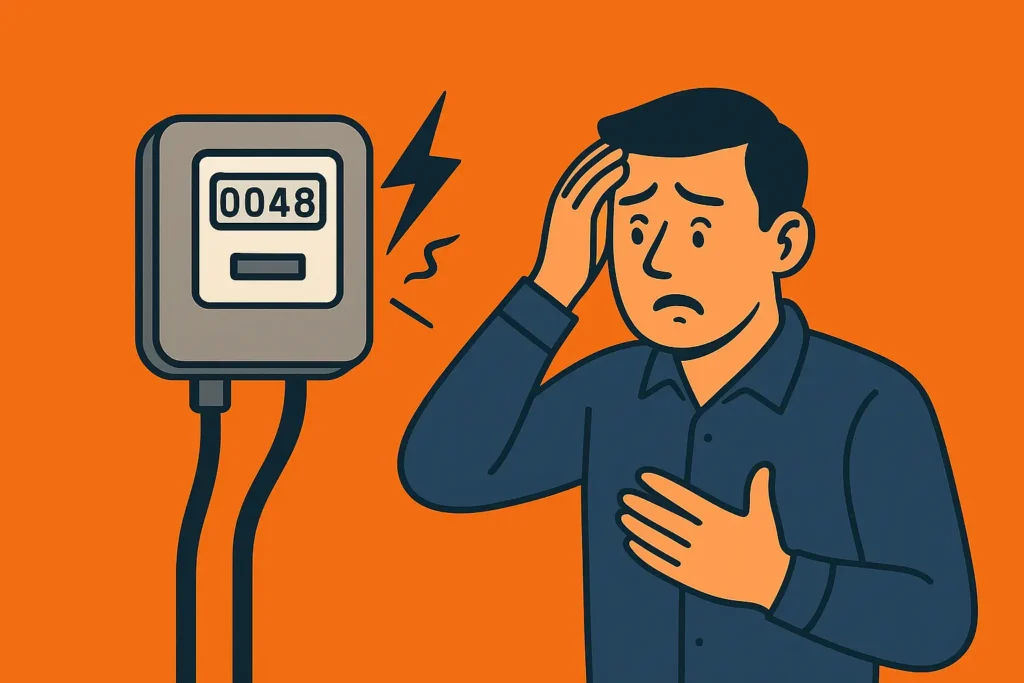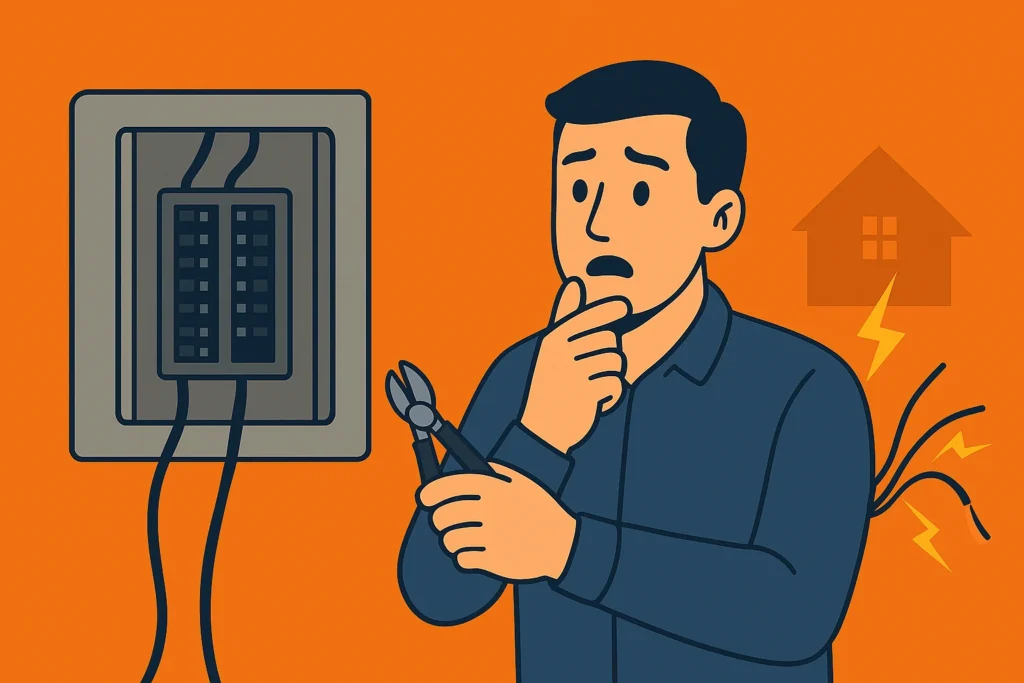Outdated wiring is not only inconvenient; it is also dangerous, leading to appliance damage, safety code violations, and possible fire breakouts. As such, countless homeowners go through wiring upgrades every year, even making it a DIY project. But there are a few mistakes that are repeated consistently, and we are here to point out and help you avoid them. From installing too many outlets on the same circuit to making your extension cord your permanent wiring and more, here is a look at all the common mistakes homeowners make during upgrades.
8 Things To Look Out For When You Upgrade Your Home’s Electrical System
First off, we believe that electricity is dangerous and should only be left to experienced and licensed electricians who know what they’re doing. However, if you feel that you have enough knowledge and skills to take on an upgrade project, we have prepared a detailed list for you to follow so you don’t wind up repeating the same mistakes that everyone else does.
Grab a pen and notepad as we explain all the things you shouldn’t do during wiring upgrades.
Failing To Comply With Code
You might think that you’ve done your research and a few changes or shortcuts won’t matter, but in the long run, failing to follow local codes can be disastrous. Not only do homeowners put their loved ones at risk, but they also face heavy fines when they undergo inspections later on. And if selling the house is ever on the agenda, then their property’s value will be severely impacted due to code violations.
Using Extension Cords As Permanent Wiring
Extension cords are meant for temporary use to plug in small devices when you don’t have access to outlets nearby. Opting to make them a permanent power solution, a handful of items like lamps, washers, and cellphone chargers can lead to them overheating, which could result in an electrical fire. In addition to your appliances getting damaged, you could also get tangled up and trip over the loose cables, making it a safety hazard.
Too Many Outlets On The Same Circuit
Yet another common mistake homeowners make is to avoid the hassle or expense of running new wiring for additional sockets. Having too many outlets on a single circuit can cause overload and fires. Though you might argue that your circuit breakers will prevent this, if the circuit is consistently overloaded, your breaker will weaken, which means a higher chance of an electrical fire breakout in the future.
Cutting Wires Too Short
When undergoing renovations or upgrades, it is important not to undermine taking precise measurements. Homeowners can sometimes become too confident, eyeballing the length of the wires required. This can mean ending up with cables that are too short, possibly requiring wire extensions for secure connections. However, we have already discussed why this is a bad idea as a permanent solution, so just measure and cut carefully.
Not Protecting Cables
DIY projects can give you a false sense of security when working with dangerous equipment, and you might be tempted to cut corners to save time or money. But, having exposed wires means damaging your insulation, risking shocks, as well as tempting fate to cause electrical fires.
Improper Electrical Junction Box Installations
Electrical boxes or junction boxes are an intricate detail that prevents accidental shocks and possible wiring damage due to exposure to the elements. They are a delicate part of your wiring upgrade and need to be carefully set up in order to keep your property and loved ones safe. Most DIY enthusiasts lack the skills and knowledge to properly set them up, making it a common mistake during wiring upgrades.
Ungrounded Sockets
Sometimes, homeowners might decide to cut costs by opting for two-prong sockets instead of three. However, money isn’t the only difference between the two. An ungrounded outlet poses a higher risk of short-circuiting and shocks than a grounded one, and the choice should be made smartly to avoid potential damage.
New fixtures but old Wiring
Finally, another common mistake homeowners tend to make is to buy new lighting fixtures without giving their wiring much thought. Older wiring might be damaged or may not support modern light fixtures that have a much higher wattage requirement. This could cause them to short-circuit, melt, or burn. So, if you’re going through upgrades, always make sure you upgrade everything.
Conclusion
To conclude, wiring upgrades are a necessity every few years to keep your property and loved ones safe, but there are a few mistakes that homeowners tend to make that can cost them dearly. From neglecting secure connections to skipping on cable covers and so much more, the above article has listed eight common mistakes that you should avoid during wiring upgrades.
FAQs
Do I need a permit for a wiring upgrade?
Yes, always make sure to acquire the appropriate paperwork whenever you plan on making major upgrades to your home.
How do I know if I have aluminum wiring?
Hire a professional electrician to assess your wiring and check whether your wiring is from the mid-1960s to the mid-1970s.
How often should I upgrade my electrical wiring?
Your wiring should be inspected every 25 years to see if it needs to be upgraded to the latest standard for safety and efficiency.




